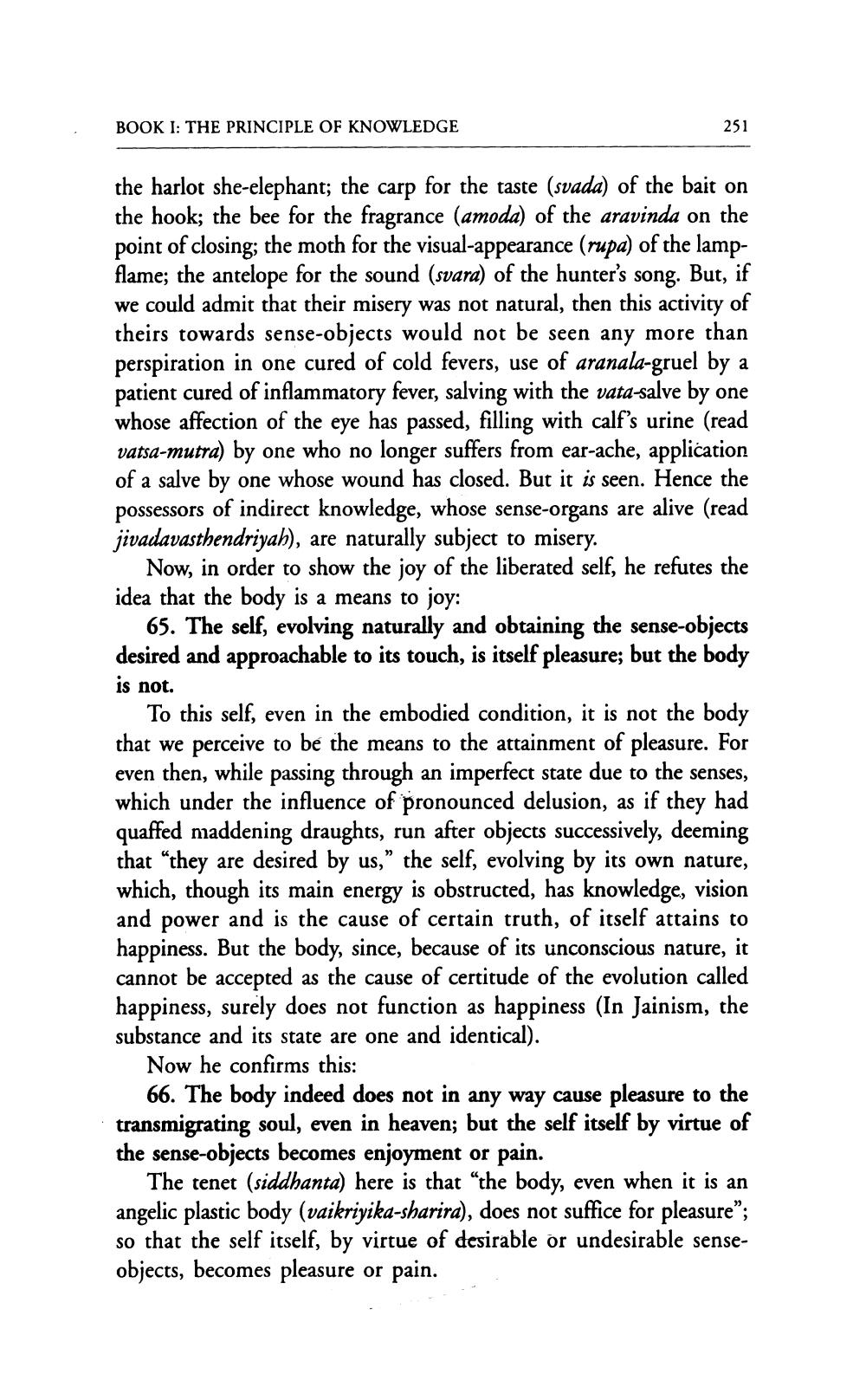________________
BOOK I: THE PRINCIPLE OF KNOWLEDGE
251
the harlot she-elephant; the carp for the taste (svada) of the bait on the hook; the bee for the fragrance (amoda) of the aravinda on the point of closing; the moth for the visual-appearance (rupa) of the lampflame; the antelope for the sound (svara) of the hunter's song. But, if we could admit that their misery was not natural, then this activity of theirs towards sense-objects would not be seen any more than perspiration in one cured of cold fevers, use of aranala-gruel by a patient cured of inflammatory fever, salving with the vata-salve by one whose affection of the eye has passed, filling with calf's urine (read vatsa-mutra) by one who no longer suffers from ear-ache, application of a salve by one whose wound has closed. But it is seen. Hence the possessors of indirect knowledge, whose sense-organs are alive (read jivadavasthendriyah), are naturally subject to misery.
Now, in order to show the joy of the liberated self, he refutes the idea that the body is a means to joy:
65. The self, evolving naturally and obtaining the sense-objects desired and approachable to its touch, is itself pleasure; but the body is not.
To this self, even in the embodied condition, it is not the body that we perceive to be the means to the attainment of pleasure. For even then, while passing through an imperfect state due to the senses, which under the influence of pronounced delusion, as if they had quaffed maddening draughts, run after objects successively, deeming that "they are desired by us,” the self, evolving by its own nature, which, though its main energy is obstructed, has knowledge, vision and power and is the cause of certain truth, of itself attains to happiness. But the body, since, because of its unconscious nature, it cannot be accepted as the cause of certitude of the evolution called happiness, surely does not function as happiness (In Jainism, the substance and its state are one and identical).
Now he confirms this:
66. The body indeed does not in any way cause pleasure to the transmigrating soul, even in heaven; but the self itself by virtue of the sense-objects becomes enjoyment or pain.
The tenet (siddhanta) here is that "the body, even when it is an angelic plastic body (vaikriyika-sharira), does not suffice for pleasure”; so that the self itself, by virtue of desirable or undesirable senseobjects, becomes pleasure or pain.




